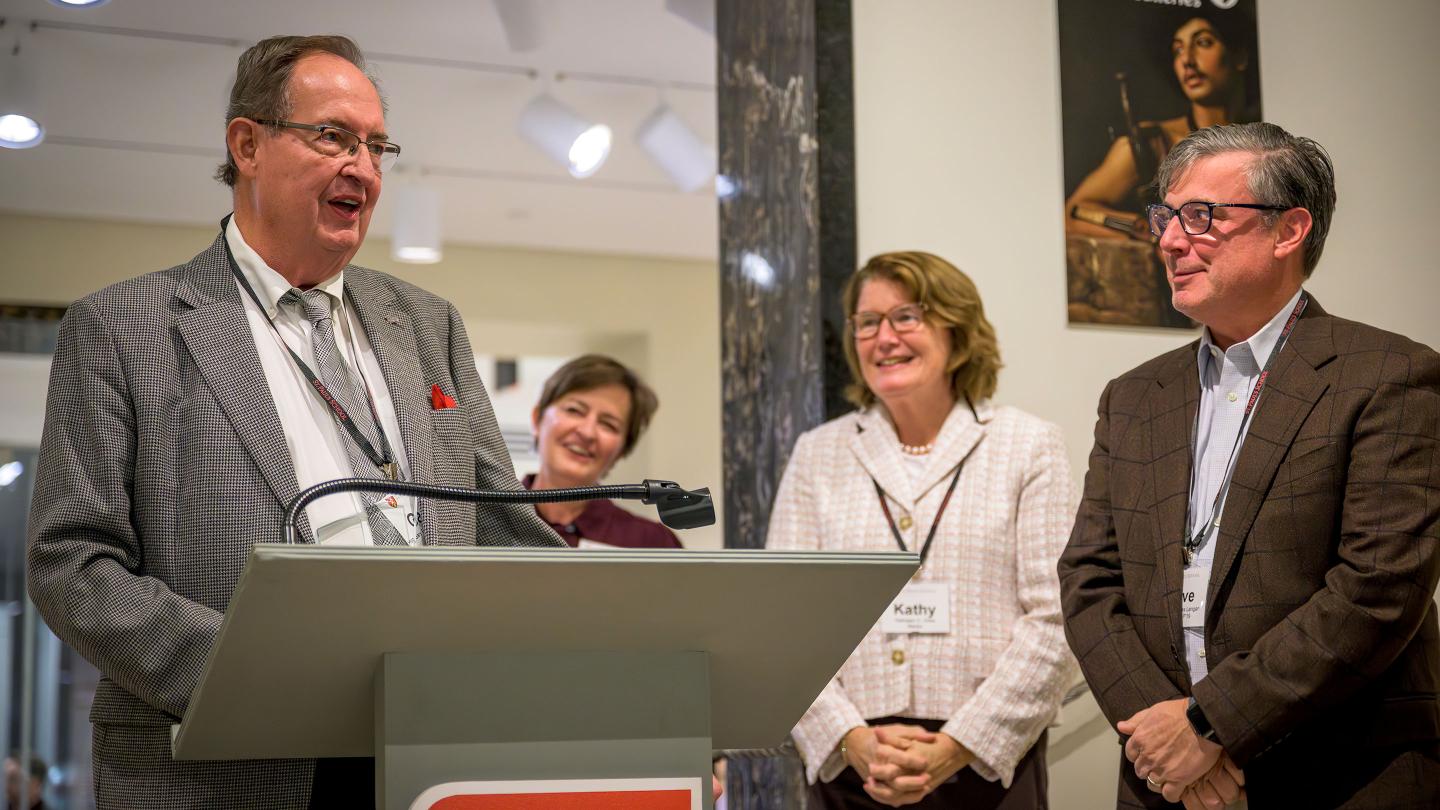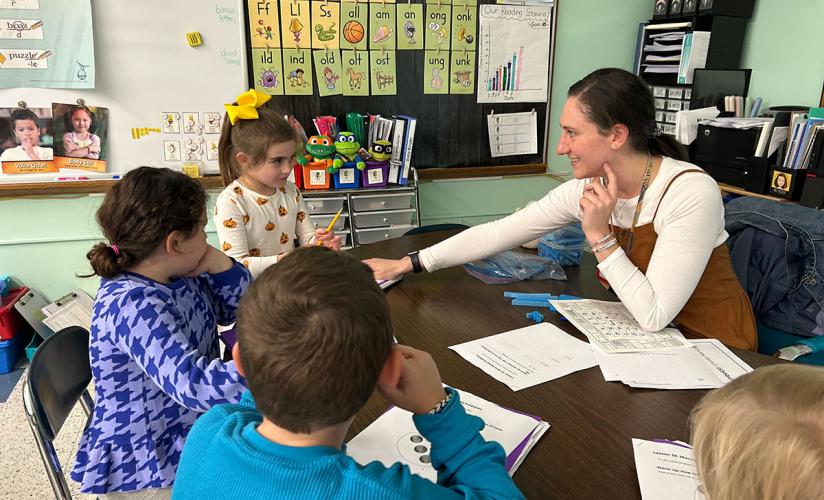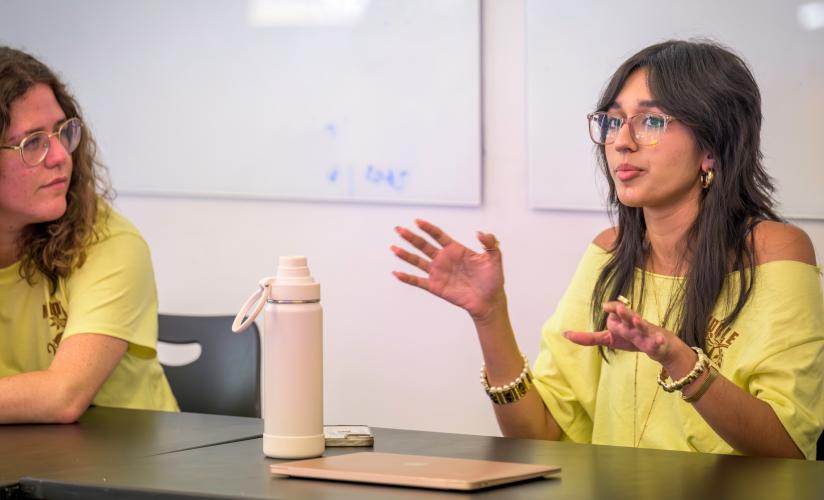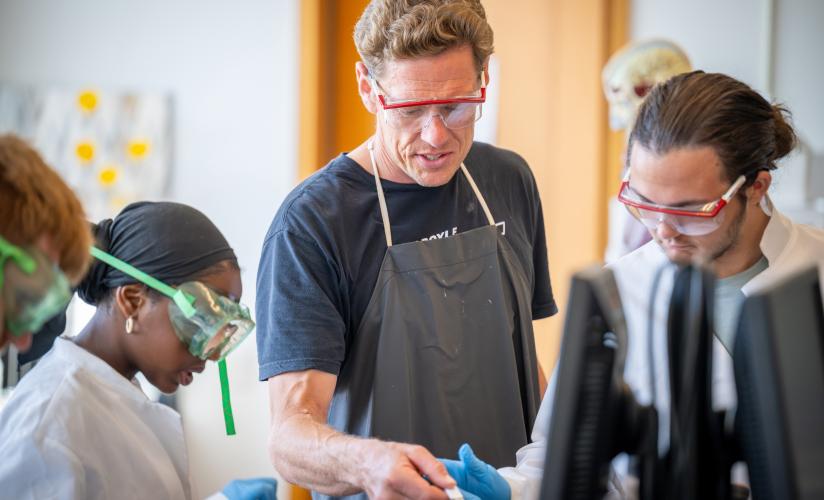

Summer Advanced Studies Program celebrates 2025 session, honors Gary Hicks ASP’70 with inaugural Alumni Impact Award
BY KRISTIN DUISBERG
Alumni and alumni parents, current and former faculty members, members of the ASP advisory board and others gathered at Manchester’s Currier Museum on Oct. 23 to celebrate the meaningful impact that the program has had on the state’s for nearly seven decades and to honor one of its most distinguished graduates, retired New Hampshire Supreme Court Justice the Hon. Gary Hicks, with its inaugural Alumni Impact Award.
The evening included a formal speaking program, with remarks by St. Paul’s School Fourteenth Rector Kathleen Giles; ASP Director Michelle Taffe ASP’85; and longtime ASP Writing Workshop teacher John Bouton. It also featured remarks from honoree Hicks, a Colebrook native who attended the program in the summer of 1970 and, after earning an undergraduate degree in mathematics from Bucknell University in 1975 and a law degree from Boston University in 1978, worked for Wiggin & Nourie in Manchester for 23 years and was sworn in as the 104th justice of the New Hampshire Supreme Court in 2006.
“St. Paul’s School and the ASP obviously changed my life,” Hicks said in accepting the award, which was established by the ASP Board of Advisors to recognize outstanding alumni leadership and initiative in and beyond the Granite State. “What St. Paul’s really does through the Advanced Studies Program is it enhances humanity — not just humanity for New Hampshire, but humanity everywhere. My classmates, the alums of the ASP, are astronauts, investment bankers … teachers, scholars, scientists, nurses, doctors — and all of that is the intentional product of St. Paul’s search for improvements in humanity. I am so blessed to have been part of that.”
Giles expressed her appreciation for Hicks’ description of the School’s investment in its summer program, saying, “This was very much the dream of the program, and of the School since its founding. And for those of us doing the work of the ASP… the common denominator among all of us here is the understanding that when we invest in the education of children, we invest in the good of the world.”
Relating a conversation she had had with her husband, Ralph, also an educator, about what COVID’s asynchronous learning model had taught teachers and students alike about the vital importance of social collaboration to children’s learning experiences, Giles made the case for the community aspect of the ASP as being among its greatest strengths. “It’s this educational community that values more than the credential, that rewards curiosity, that also rewards intellectual collaboration — that is what is going to strengthen humanity going forward,” she said.
Writing Workshop Teacher Bouton, who retires this year after several decades with the program, reflected on “the ASP delta” — the remarkable rate of change that occurs in students over the course of their summer at St. Paul’s. “The delta at ASP … happens in relationships,” he said. “For most students, it’s the relationship between students and the adults, be they supervising teachers or interns. Coming to trust the order of this program in [this] beautiful setting, seeing the commitment of their intellectually promising peers, they buy in . … In the end, we’re trying to call forth good human beings here at the ASP. Their resilience gives me hope as we prepare students to enter a world in which the only constant is change.”
Now in her third year as director of the 68-year-old program, Taffe was delighted by the turnout at the event. “It was amazing to hear alums from all different decades share stories of how this five (or six) week program changed the trajectory of their lives, often starting first with where they went to college and how they approached their studies once there,” she said.



